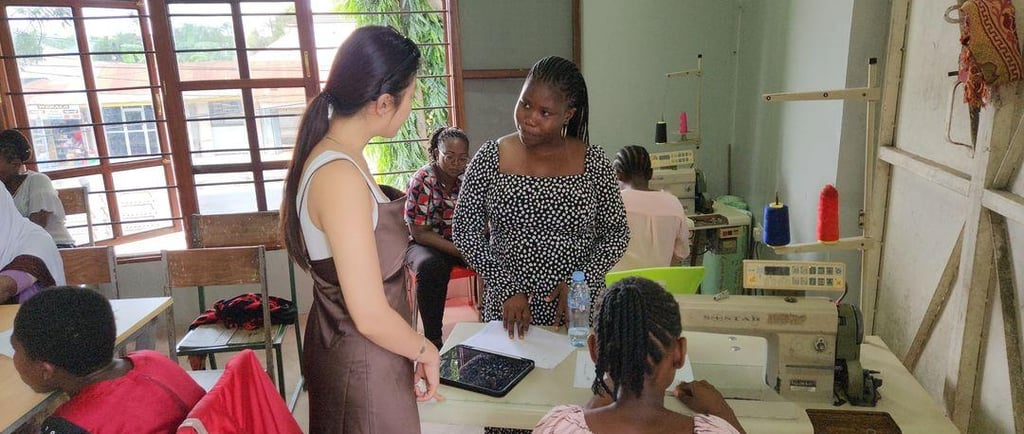Empowering Single Mom Through Sustainable Mass Manufacturing in Africa
The mass production industry in Africa holds significant potential in enhancing local economies and providing meaningful job opportunities. 90 Production Inc. is at the forefront of this endeavor with its CTS Project, which focuses on empowering communities by improving local clothing manufacturing capabilities. This initiative is particularly aimed at single mothers and local workers, equipping them with the skills necessary for garment production and sustainable employment.
5/30/20232 min read


Introduction to 90 Production Inc.’s CTS Project
The mass production industry in Africa holds significant potential in enhancing local economies and providing meaningful job opportunities. 90 Production Inc. is at the forefront of this endeavor with its CTS Project, which focuses on empowering communities by improving local clothing manufacturing capabilities. This initiative is particularly aimed at single mothers and local workers, equipping them with the skills necessary for garment production and sustainable employment.
Innovative Technologies to Enhance Textile Production
One of the standout features of the CTS Project is the introduction of innovative technologies, notably the non-electric fundi marker. This tool is designed to streamline the process of fabric marking, leading to improved precision in garment production. By utilizing such advanced methods, the project not only reduces fabric waste but also enhances the overall quality of mass-produced garments. The incorporation of these technologies is a game-changer for local manufacturing, allowing workers to produce higher quality textiles and ultimately benefiting the entire industry.
Vocational Training for Sustainable Development
The heart of 90 Production Inc.’s mission lies in its commitment to vocational training programs. Through educational initiatives, local workers receive the necessary training to excel in textile manufacturing. The focus on skill development empowers single mothers, providing them with viable employment opportunities, which is crucial for their financial independence. Furthermore, these programs promote sustainable development by emphasizing environmentally conscious practices within the textile industry, aligning economic growth with ecological responsibility.
In Tanzania, the project's presence is transformative. By supporting local facilities and fostering education, 90 Production Inc. is driving a positive change within the textile sector. The emphasis on sustainable manufacturing not only elevates the region's economy but also encourages a community-focused approach, where workers are proud of their contributions to the global textile market.
Conclusion
In conclusion, 90 Production Inc.’s CTS Project in Africa exemplifies how innovative technologies and comprehensive vocational training can revolutionize local textile manufacturing. By prioritizing the empowerment of single mothers and local workers, the project creates a sustainable model that promotes both economic growth and environmental stewardship. As this initiative continues to unfold, it sets a precedent for other regions, showcasing the potential of responsible practices in transforming the textile industry.
